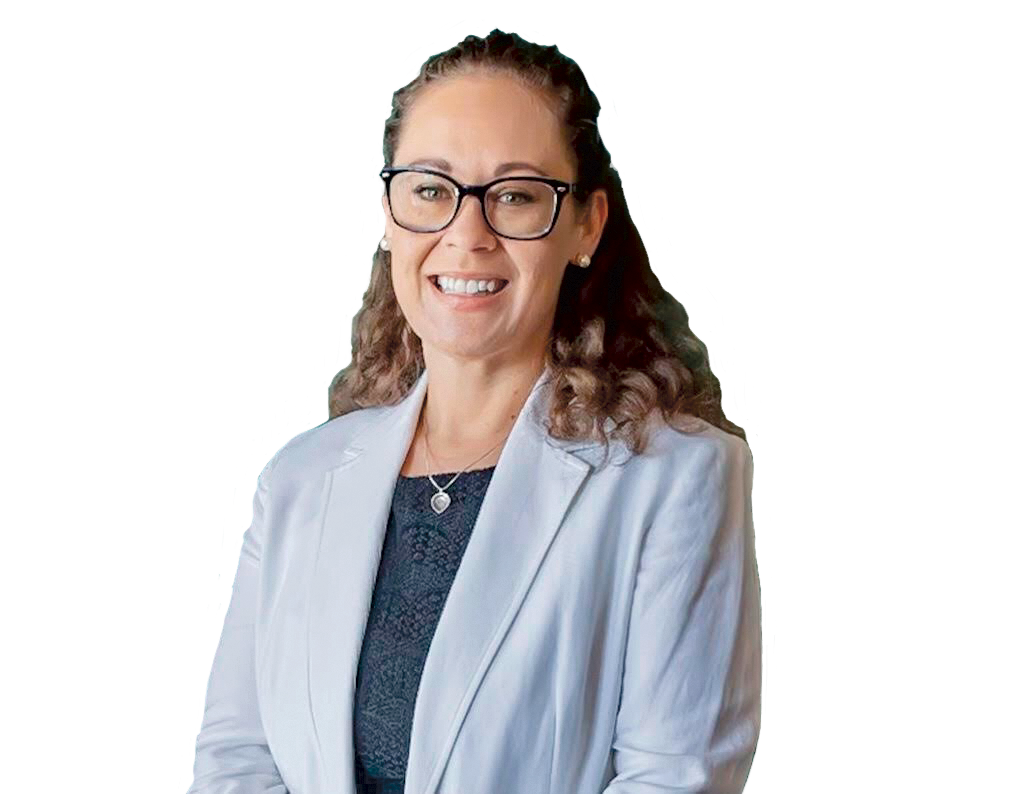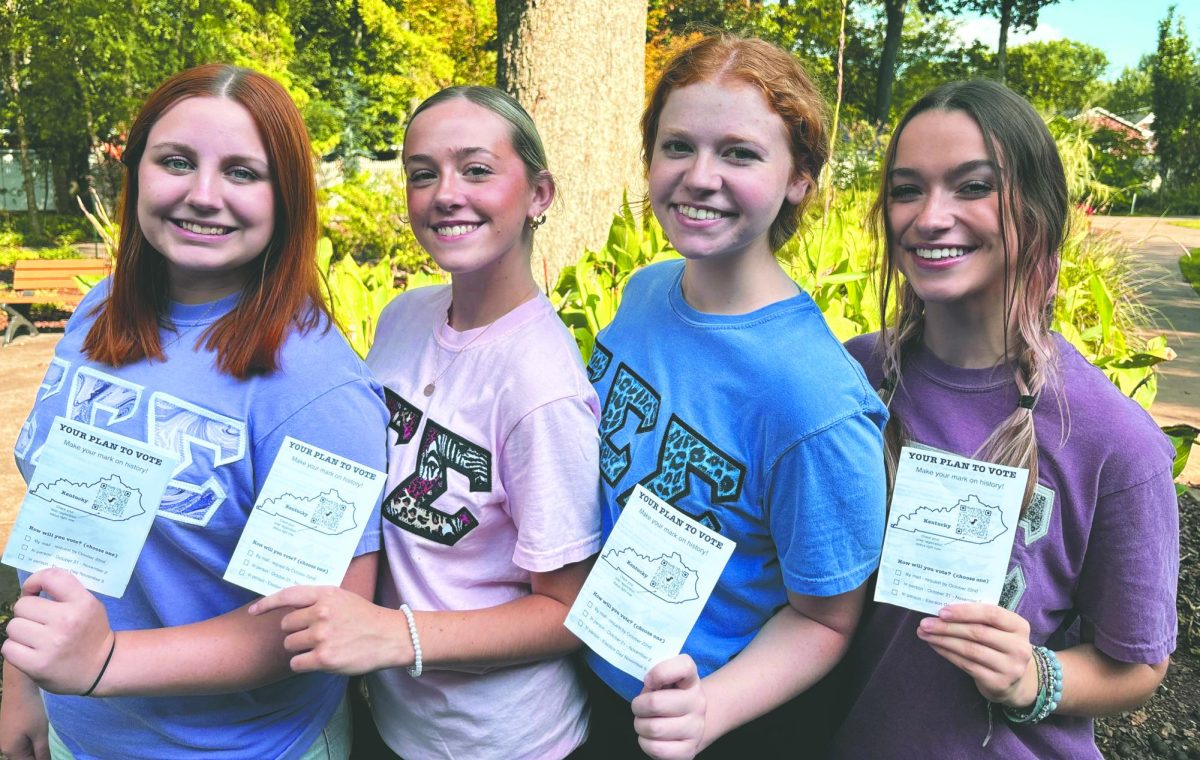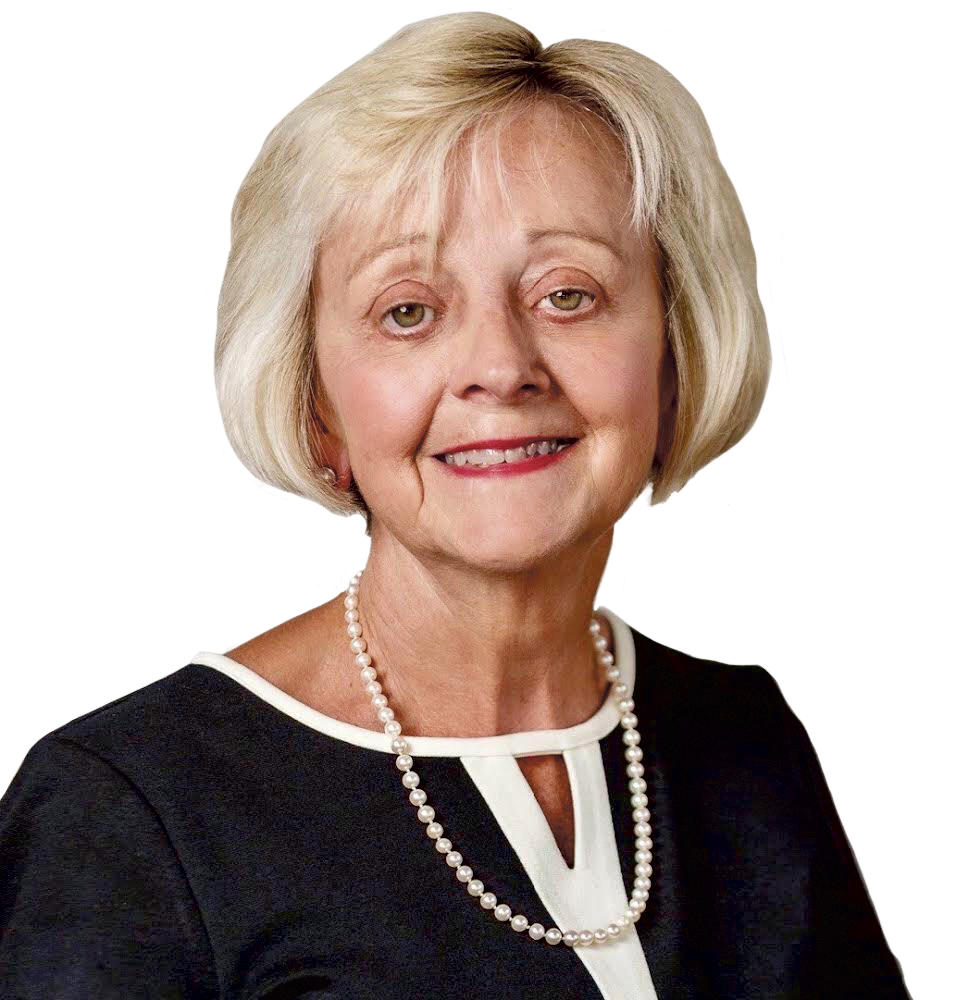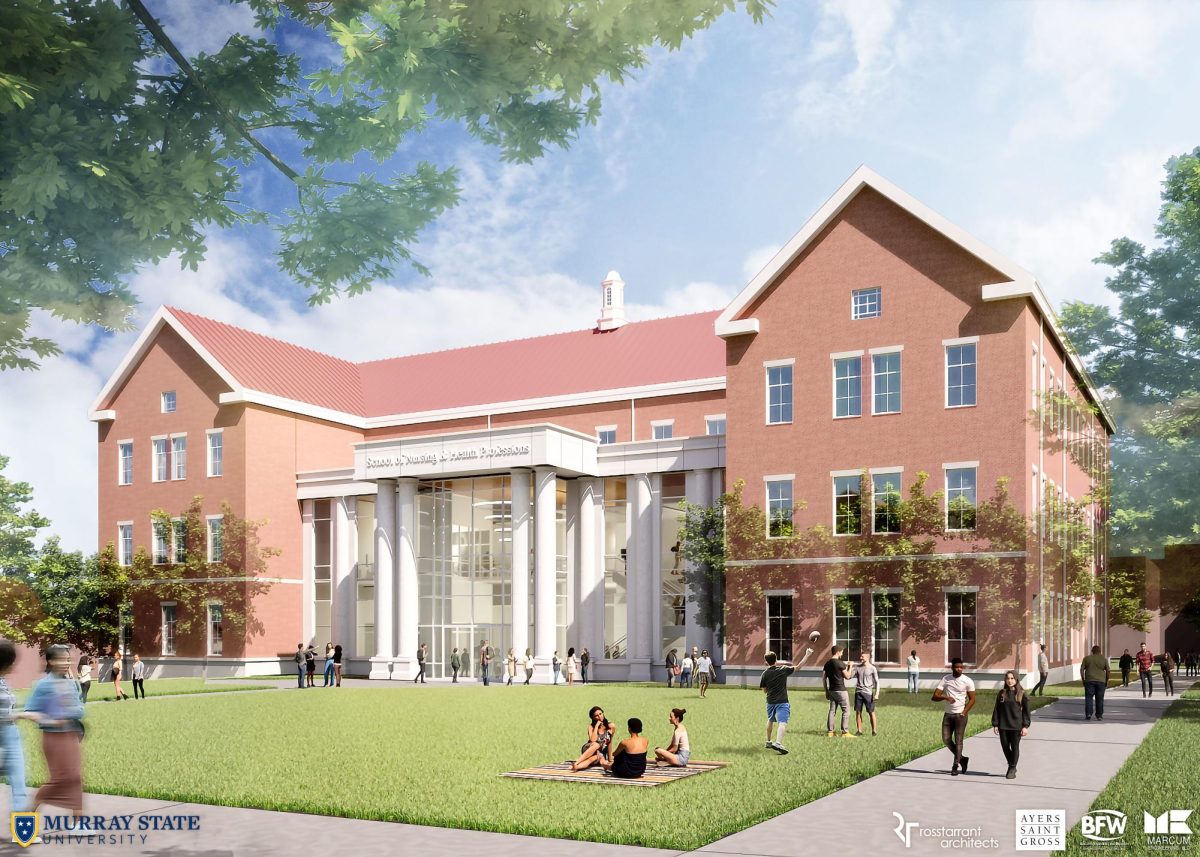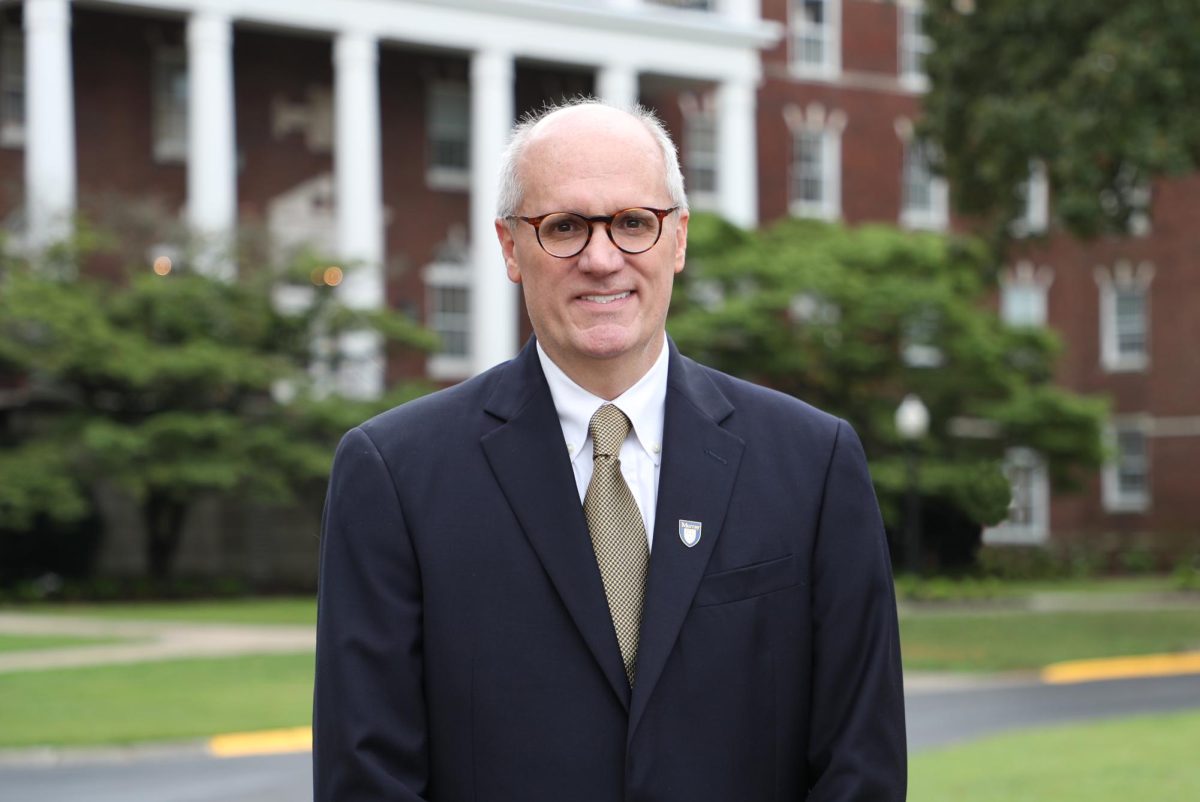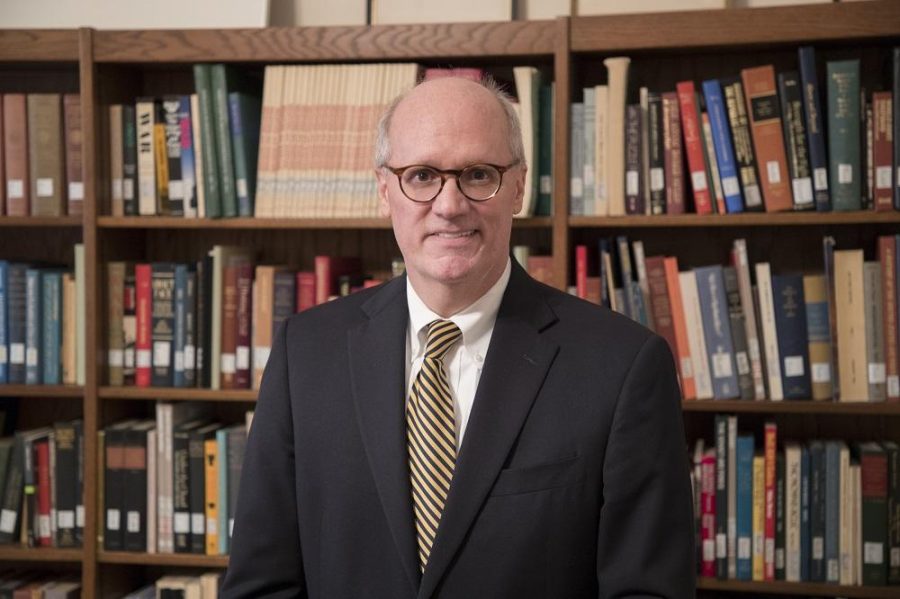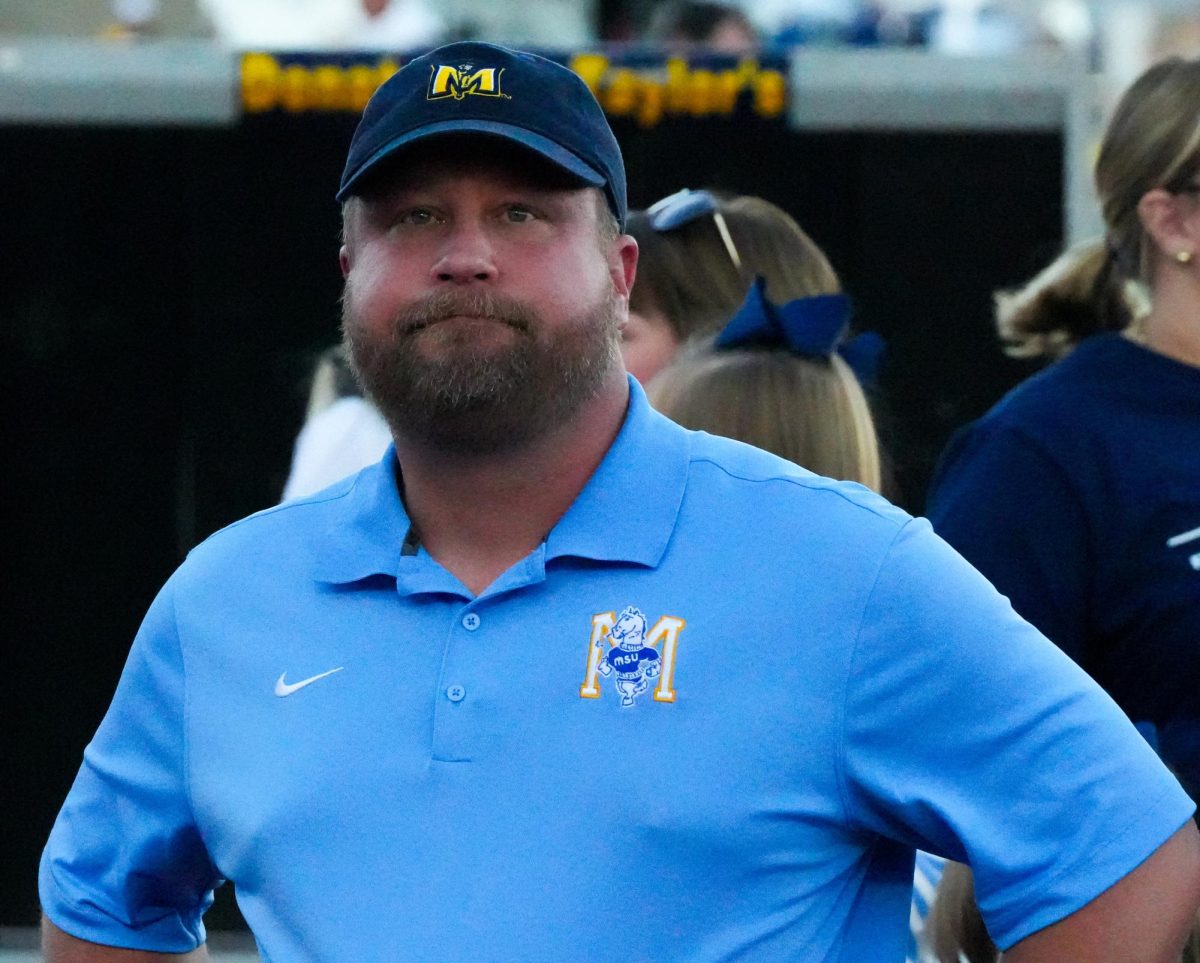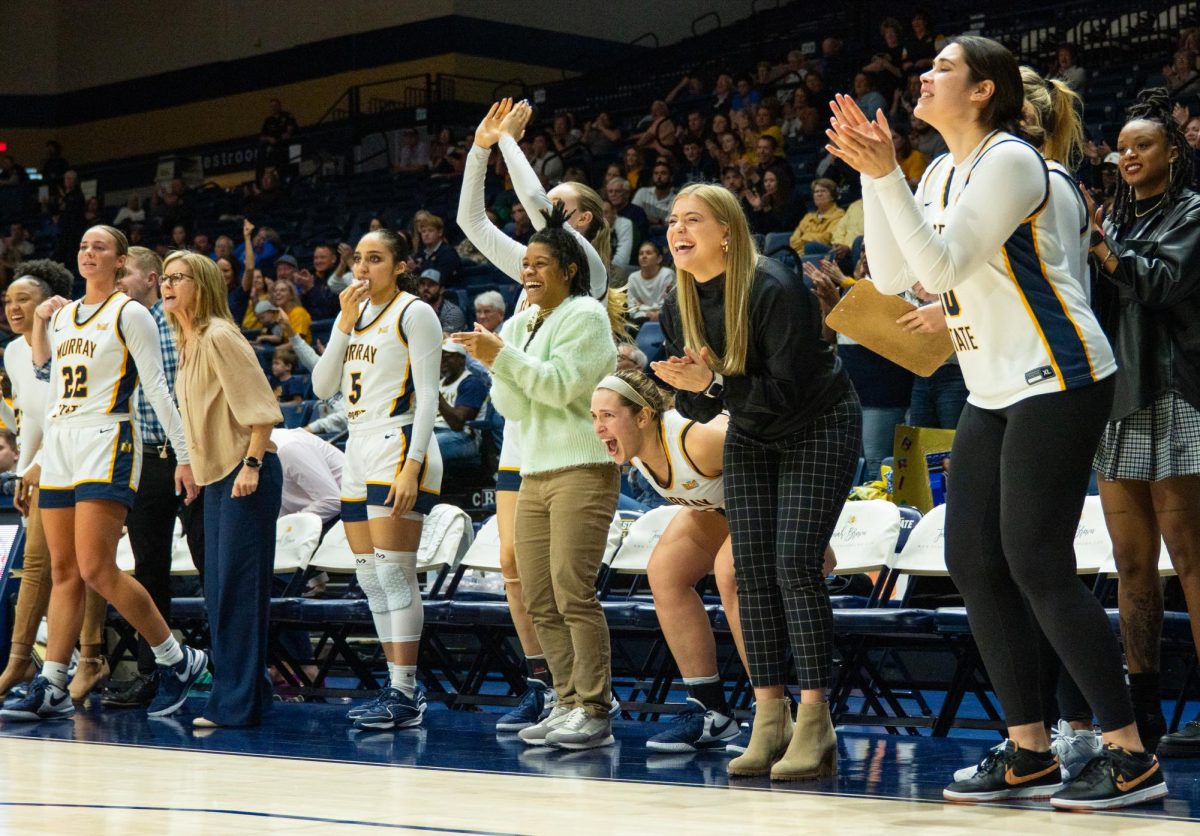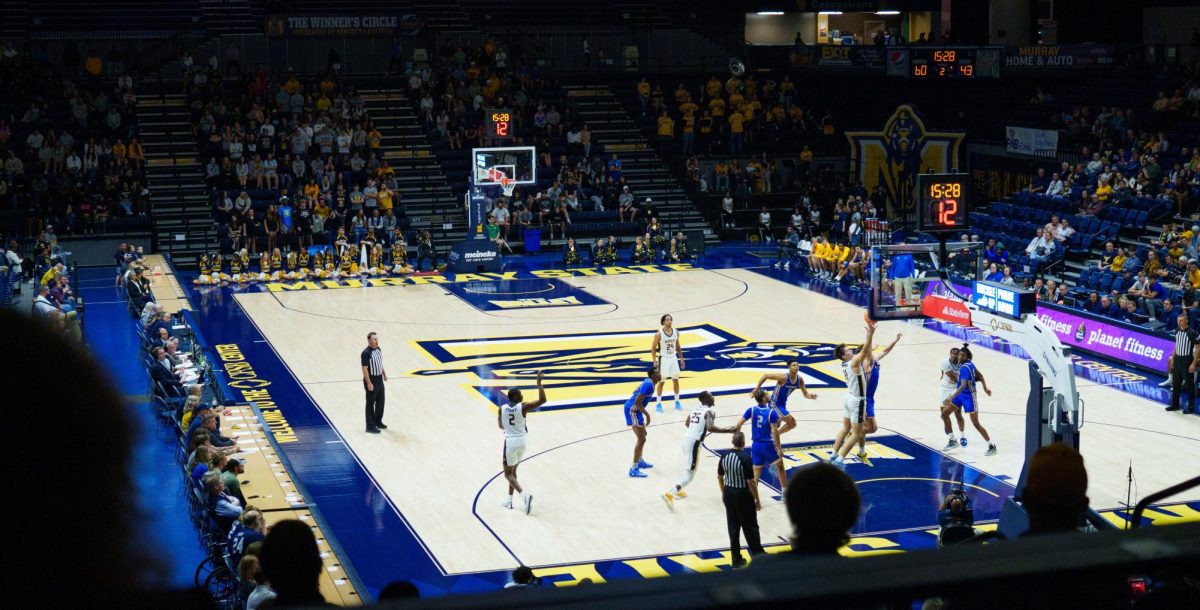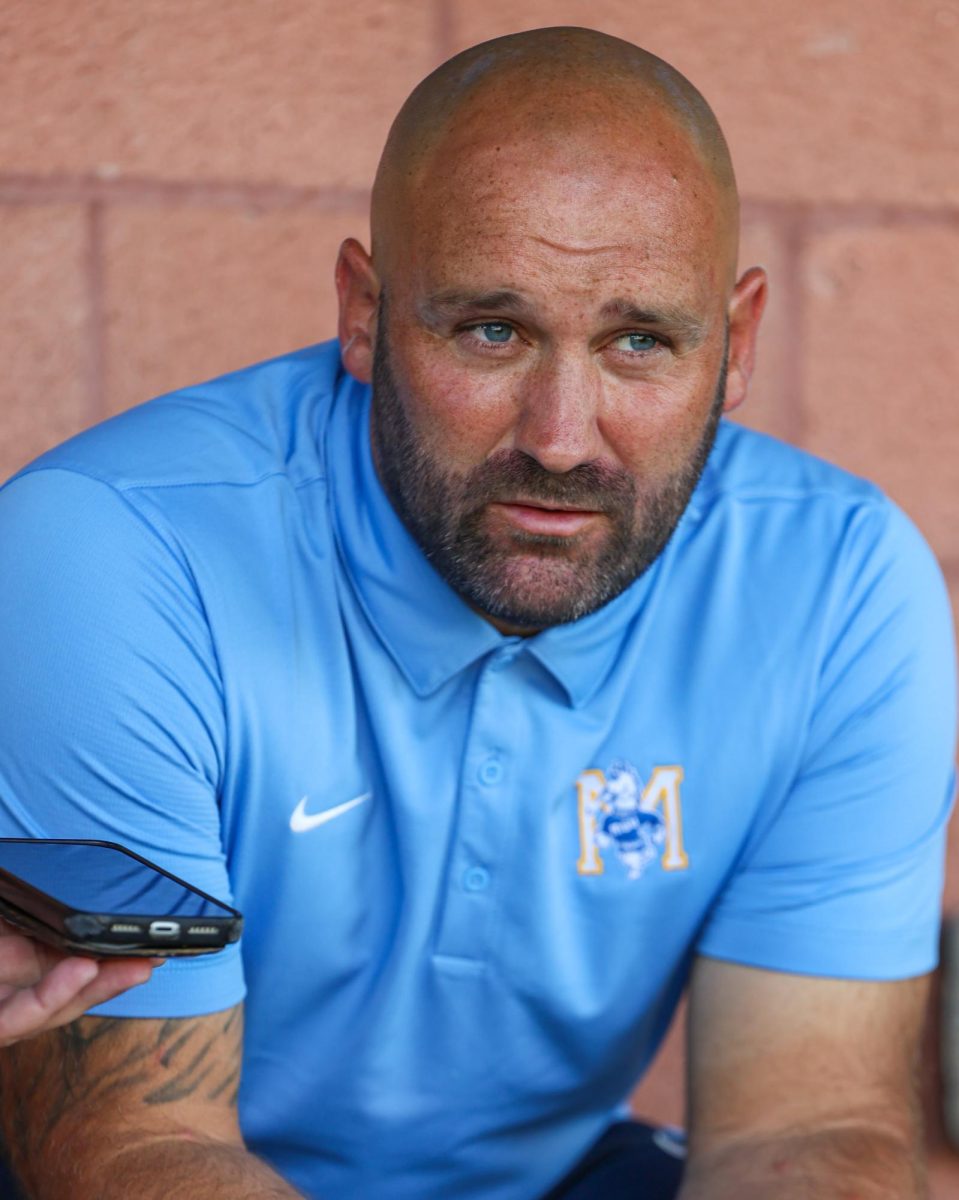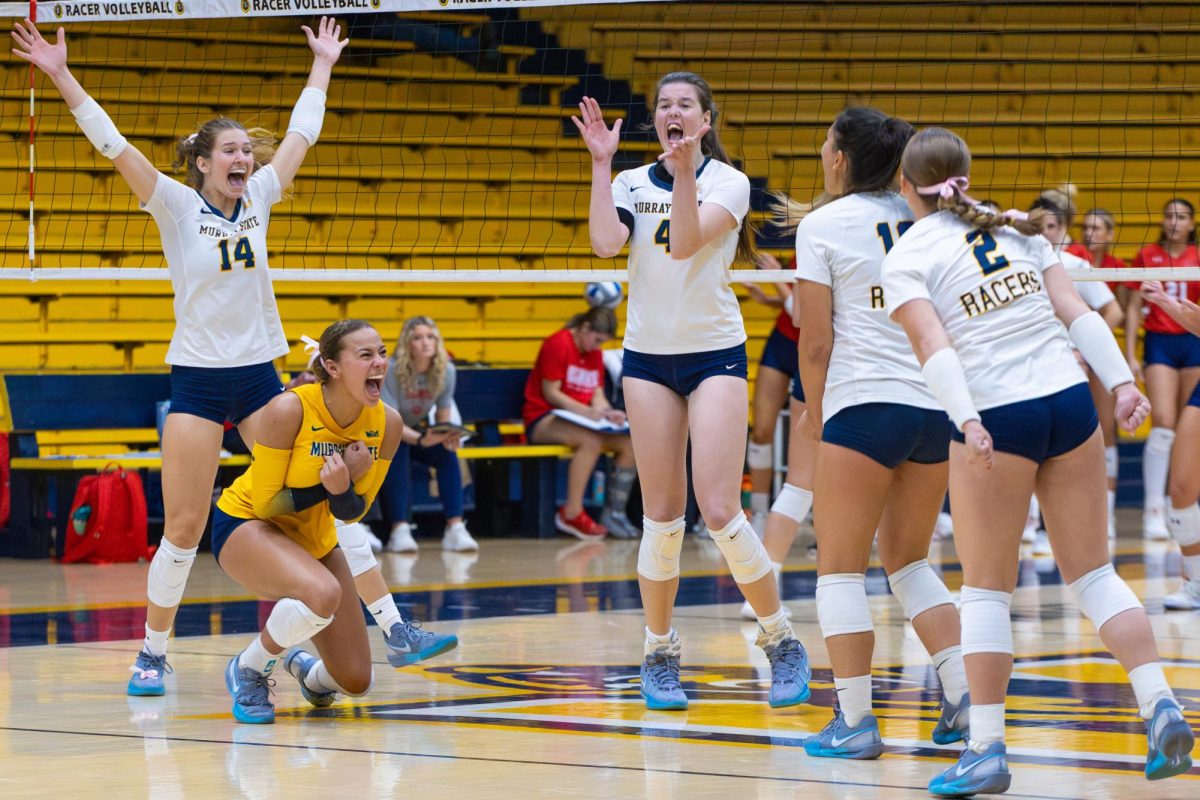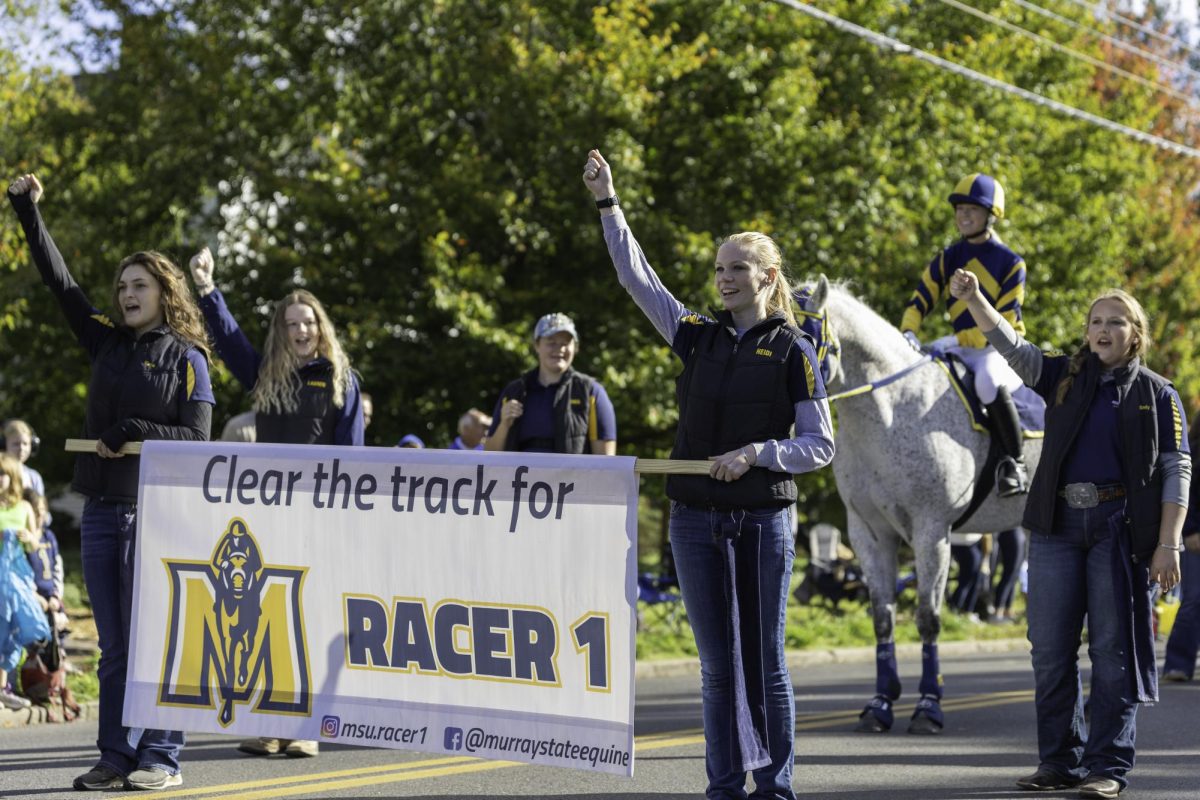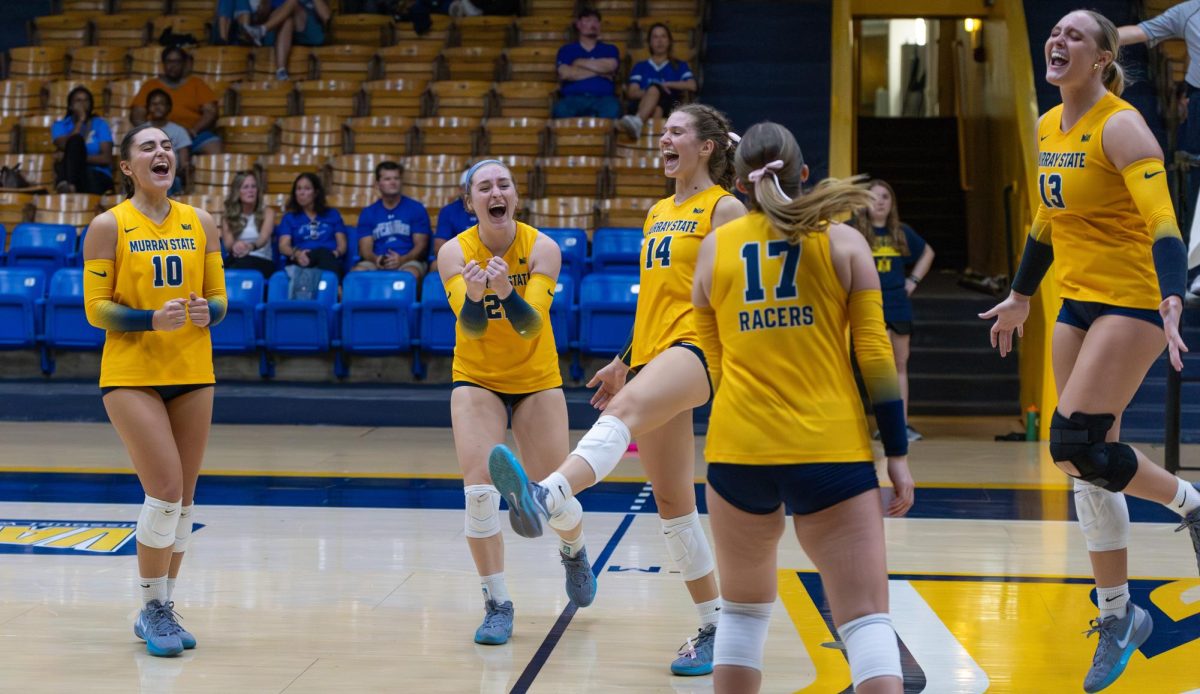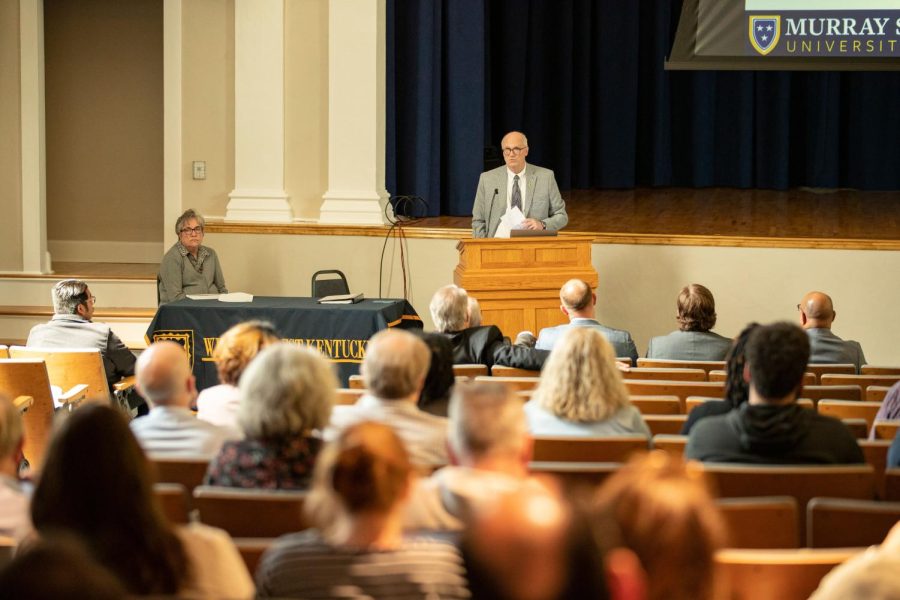Budget reveals major reallocations
Admin talks COLA, tuition increase
President Bob Jackson (center) and other University leaders address the 2023-24 fiscal year budget at the Budget Town Hall on Tuesday, April 25 (Photo courtesy of Jeremy McKeel).
April 27, 2023
The 2034-24 University budget proposes increasing tuition by 2.9%, a cost of living adjustment (COLA) of 3.3% and 5.5% and raising the minimum wage for student workers on campus from $7.25 an hour to $8.00 an hour.
President Bob Jackson and University leaders addressed the 2023-24 fiscal year budget at the Budget Town Hall meeting on Tuesday, April 25.
The change in COLA is determined by an employee’s position and years spent at the University. This will be the largest COLA increase in 23 years.
There is also a proposed 3% increase in housing and 6% increase in dining.
President Bob Jackson said 72% of the University budget is enrollment driven, while 75% is people driven. This means 75% of the budget is determined by faculty and staff salaries, benefits and other related areas.
Jackson said $5 million has been set aside to help cover reallocation, more specifically COLA increases and benefit increases.
There will also be an increase in pension costs because of the recent passage of House Bill 5.
“For the next four years, we will have an approximately $341,000 increase in our pension costs that we have to budget for each year too,” Jackson said.
Jackson said there will be a continued focus on access and affordability, which will be reflected in the budget.
We added a mental health counselor last year on a one-year contract,” Jackson said. “That position will be made permanent as we move forward. There’s a number of student campus life initiatives that we’ll talk about, including esports you see mentioned, as well as future health services, athletic enhancements and needs.
Vice President for Finance and Administration Services Jackie Dudley said with a proposed tuition and fees increase of 2.9%, the University could see potential revenue of $1.8 million. This revenue will be invested into student scholarships.
As a way to help fund campus enhancements, Dudley said there will be a new student fee.
“All of those student service enhancements will be funded with a…new student fee of $100 a semester,” Dudley said. “It’s applied to students when they take five or more credit hours of on-campus instruction.”
This fee will not apply to those taking dual credit courses, online courses or high school students enrolled in on-campus courses.
Provost Tim Todd said he and other administrators looked at reviews of courses and programs with low or no enrollment.
“Low-enrolled courses are only going to be taught going forward when…under an absolute necessity,” Todd said. “If some kid needs a three-hour class, and we need to offer it in the summer, we’re going to do it. We’re going to figure it out, and we’re going to get them graduated accreditation requirements, discipline criteria, etc.”
From fall 2020 to fall 2022, the number of undergraduate sections of low-enrolled courses were 75.
For a course to be considered low-enrolled, fewer than 10 students are enrolled in regular semester courses.
Todd said sections were reduced by 9.5% and that led to retired academic programs during this current budget cycle.
Jason Youngblood, director of Facilities Management, discussed plans for the new nursing building set to open January 2026.
“It was announced that we would get $45.5 million for a new nursing building on campus,” Youngblood said. “We have selected Ross Tarrant architects out of Lexington to be our prime lead consultant for architectural and engineering services. They have partnered with Ayers Saint Gross, who is a national nursing design expert, along with Markham Engineering and BFW engineers to complete their consulting team for us.”
Youngblood said renovations will occur in Oakley Applied Science and Mason Hall. There will also be repairs to HVAC units across the University.
Dudley said the Kentucky Council on Postsecondary Education must approve the proposed tuition rates.
“Even though our board does approve tuition and fees, the council still has the final approval on those,” Dudley said. “That [approval] is pending, but it will be late June before we have final tuition and fee numbers that we actually can say our final numbers are not pending approval.”
The proposed budget will be discussed and voted on at the next Board of Regents meeting on Friday, June 2.


